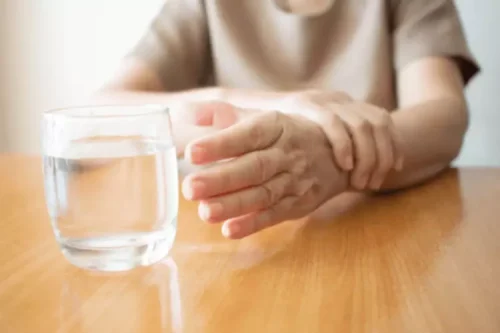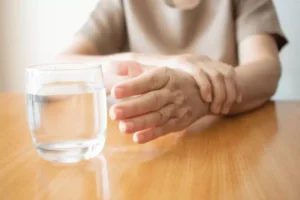
Go to the nearest emergency room or call 911 (or your local emergency service number) if you or a loved one has any concerning symptoms of alcohol withdrawal. It’s much better to focus on something you enjoy than to focus on the discomfort of your withdrawal symptoms. Addiction tends to make everything else in life seem less enjoyable. Music you used to love may no longer have the same draw while you are using alcohol.
Evoking calm: Practicing mindfulness in daily life helps

However, post- FMT, a decrease in serum B cell absolute count was observed, correlating with alterations in gut microbiota and certain differential metabolites. As the source of galactose-deficient IgA1 (Gd-IgA1), B cells play a central role in the pathogenesis of IgAN20. “Multiple-hit” theory suggests that dysbiosis of mucosal microbiota may lead to activation of the mucosal immune system. Experimental evidence indicates that pathogens or resident microbiota may activate mucosal immune cells via Toll-like receptors, upregulating the expression of B cell activating factor and A proliferation-inducing ligand.
How Long Does It Take To Detox From Alcohol?

A healthcare provider will also run tests to rule out other medical conditions that have similar symptoms of alcohol withdrawal or occur alongside withdrawal. These conditions include gastrointestinal bleeding, infection, intracranial hemorrhage (acute bleeding in the brain), and liver failure. For most people, alcohol withdrawal symptoms will begin to subside after 72 hours. If you are still experiencing withdrawal symptoms after three days, talk to your healthcare provider.

How Much Do I Have To Drink To Experience Withdrawal?
- Know that your provider will be there to support you, not to judge you.
- At times, it’s easy to forget why you entered recovery in the first place.
- People with alcohol use disorder should be monitored by a medical professional when withdrawing from alcohol.
- Alcohol withdrawal delirium (AWD), commonly known as delirium tremens (DT), is the most serious symptom of alcohol withdrawal.
- The only way to prevent delirium tremens is to stop, or dramatically reduce, your alcohol intake.
When a person drinks heavily, frequently, or for prolonged periods of time, their brain compensates for alcohol’s depressant effects by releasing more stimulating chemicals (compared to when a person does not drink). See a doctor if withdrawal nausea and vomiting symptoms have not ended a week after discontinuing drug or alcohol use. A doctor can rule out or treat other possible causes of your symptoms and help you find relief. Long-term treatment of AUD should begin concurrently with the management of AWS.8 Successful long-term treatment includes evidence-based community resources and pharmacotherapy.
- Professional detox is highly recommended for those likely to experience moderate to severe withdrawal symptoms and will support you during detox.
- Not everyone who uses marijuana experiences withdrawal when they stop using it.
- It’s important to note that the Clinical Assessment mentioned above may be unreliable because it is subjective in nature.
- These cravings and compulsions to leave detox and relapse may be overwhelming and extremely difficult in the moment.
- When you cut back on or quit using THC-containing products, the lack of THC in your body can cause uncomfortable symptoms, like irritability and insomnia.
The test is free, confidential, and no personal information is needed to receive the result. Avoid people who may encourage you to drink alcohol or may not support your decision to stop. It may be easier on your rehabilitation to skip visits with “drinking buddies” or avoid gatherings with a focus on drinking.
Assessing Severity
If you abruptly stop or decrease your intake of the substance, your body is once again thrown off balance and symptoms of withdrawal may result. Such symptoms are often both physical and mental, and can potentially be dangerous depending on the type of drug. When you regularly take a substance for a period of time, your body may build a tolerance and dependence on that cure for alcohol withdrawal symptoms substance.
Furthermore, the risk of developing an AUD, which can lead to AWS, depends on how often, how quickly, and how much alcohol someone consumes. While you may be able to manage mild symptoms on your own or with the support of family and friends based on your doctor’s recommendations, more severe symptoms usually require medical treatment. Moderate symptoms of alcohol withdrawal may last up to 6 days, whereas severe symptoms may last for 5 to 7 days. Complications of DTs treatments largely depend on the treatments you receive. Because there are many different medications and treatment approaches, the side effects can vary widely.

